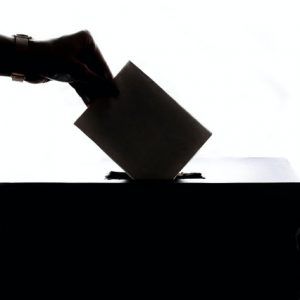Politics affect every minute detail of our life. Whether we like it or not. But mostly, we tend to leave political matters to politicians. When they make laws and policies that oppress us, we think that there is not much we can do. But the power lies with the people.
Also read: Talking Politics: Nerima Wako-Ojiwa on Why We Should All Be Concerned
Plato, in his wisdom, said, "the price good men pay for indifference to public matters is to be ruled by evil men." He put it in different words and said, "the heaviest penalty for declining to rule is to be ruled by someone inferior to yourself."
It is evident, especially in Kenya, that largely, inferior men are ruling while the superior of mind, intellect, and execution abilities are merely spectating.
In politics, "we presume that everyone who knows how to get votes knows how to administer a city or a state. When we are ill… we do not ask for the most handsome physician or the most eloquent one."
Now that we know that one of the penalties of refusing to participate in politics is that you end up being governed by your inferior, it is time to stand up and decide.
It is high time you and I invested a significant amount of our being into critically deciding who will be in charge of the one thing that infiltrates every area of our lives.
I won't teach you how to think in this article, but I will highlight several thinking potholes that might lead us to choose undeserved fellows to critical political positions.
Bandwagon effect
I have a friend who passionately supports one of the presidential candidates for the 2022 election. Whenever his favourite candidate holds a rally, he is very keen on the number that his candidate was able to pull. If the numbers are enormous, he will post them on his WhatsApp status and even share them with me. Telling me, “look, we have the numbers.”
This is the bandwagon effect at work. The bandwagon effect is the tendency of individuals to adapt behaviour, attitudes, or beliefs just because others have done the same. Basically, this is the mob psychology at play.
This insinuation is enough to shape political beliefs and ideologies. So the next time you are taking sides in a political bout, be keen on this and check your sovereignty.
Also read: Do Not Follow the Leader: Mimetic Nature of Human Beings
Availability heuristic bias
Once the bandwagon effect has taken root, other cognitive biases kick in. To start with, we have the availability heuristic bias. This form of bias takes place when you make a decision based solely on an example, piece of information, or recent experience.
My friend has a trail of images of the masses that have turned up in different rallies for his presidential candidate. Whenever you object to any of the agendas by his presidential favourite, somehow, he will try to win the objection with the numbers in the images.
For him, the images are enough evidence. Do you have the same bias? What is your one example, information of experience that you use to prefer political candidates? Check that.
Anchoring bias
When the availability heuristic takes ground, it grows some roots. These roots lead to the anchoring bias.
With anchoring bias, you tend to rely heavily on one piece of information. When setting your plans, making estimations, or even interpreting new information, you do it from the reference point of the one piece of information. That piece of information becomes your anchor. As a result, you fail to see things objectively.
Think today of the candidate you favour and the one you don’t. How do you process information from either of them? Are you objective?
Confirmation bias
Now, you are anchored. You are decided. You have taken sides as to what camp you belong to. What happens then? Confirmation bias kicks in.
Confirmation bias is the inclination for an individual to search or interpret information in a manner that confirms what they originally believed.
My friend is very active on Facebook. He has followed every Facebook page and group in favour of his favourite candidate and every group against the other candidate. This way, he only gets positive information about his preferred candidate and negative information about the other candidate.
Can you see yourself in my friend? Have you done the same?
Selective perception
Closely related to confirmation bias is the selective perception bias. Individuals perceive what they want in the media and ignore opposing viewpoints.
Like my friend, do you find yourself switching off mentally, switching television or radio channels, or literally switching off the medium when the candidate you disapprove comes on?
On the other hand
My friend is better off because he has taken a side. At least he stands for something. Whether biased or not, he has something to fight for. When the time comes to make a political decision, his voice will be heard.
The next three types of biases mostly lead to a neglect of participation and being indifferent to the political processes and activities.
Outcome bias
Outcome bias is a decision is based on an outcome regardless of the past events that led to the outcome. Some of us resign ourselves to what we are presented with after an electioneering period without considering how what we are presented with came to be. We surrender to the outcome.
As sovereign individuals whose voices must be heard, it is your and my responsibility to ensure that the outcome we are presented with represents our voice. Being passive about it is just taking away power from yourself.
Also read: The Consequences of Passive Inaction
Once we do that, we enter one of two biases. The ostrich bias, where we hide our heads and ignore that the country is burning, or we engage the choice supportive bias where we rationalise the outcome. Then, we start finding non-existent positive attributes to what we have.
Let us not allow ourselves, the good men, to be led by the evil men. Stand up. Let your voice be heard. If you don't speak up, no one will hear you. Despite how noisy it might be, it matters that you speak. And as you speak for yourself, speak your truth.





